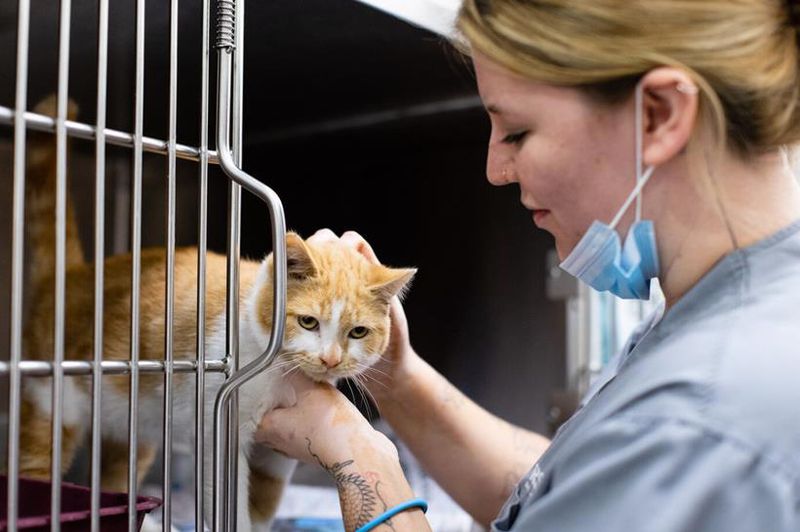The RSPCA has warned shelters will be unable to take stray or surrendered cats over the next month due to a nationwide core feline vaccine shortage.
Over the next four weeks, all sites, except for the Blue Mountains and Illawarra shelters, will be temporarily unable to accept new cats.
RSPCA stated that the measure was essential to protect the wellbeing of animals that were already placed in its shelters.
“Core feline vaccinations play a pivotal role in safeguarding cats from not only cat flu, but also the fatal feline panleukopenia virus,” RSPCA NSW Chief Veterinarian Dr Liz Arnott said.
“Although feline panleukopenia is rarely encountered in pet cats and flu symptoms are typically manageable, they are much more commonly seen in a shelter environment and can have dire consequences.
RSPCA NSW has stringent vaccination protocols for every incoming cat as illnesses can spread rapidly in shelters, resulting in large-scale mortality.
The remaining vaccine stock will be reserved to complete vaccine regimes for cats in the RSPCA’s care.
As weather becomes warmer and cat breeding activity increases exponentially, Dr Arnott urged pet owners to ensure they have their cats desexed from four months of age.
“In light of these vaccine shortages, the limited sheltering options and the upcoming kitten season, it’s never been more crucial for people to educate themselves on adopting responsible cat ownership practices, as well as what to do if they find a cat or a litter of kittens,” Dr Arnott said.
“During kitten season, feline intake at RSPCA NSW increases by eight times, up to 500 kittens each week. In just two years, a pair of undesexed cats can lead to 20,000 kittens.
“Desexing is vitally important to prevent unwanted pregnancies and keeps your beloved feline friend healthy.”
The RSPCA has advised members of the community of what they should do if they come across a stray cat:
- If the cat appears healthy and uninjured it is likely receiving food or care from people in the neighbourhood and there is no need to bring it to a shelter.
- Use social media or ask neighbours to identify those who may be providing care and ensure best plans can be made for the cat when the time is right.
- In the case of finding a litter of stray kittens people are encouraged to refer to the advice on the RSPCA NSW website.
While vaccines are in short supply, the RSPCA strongly urges they provide care for them over the next four to six weeks or find family or friends able to do so.
